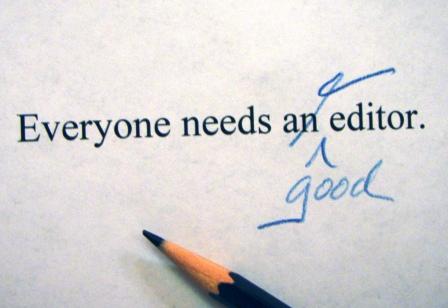We all see the shelves at our local bookstores lined with copycat books made to mimic our favorite series.

END SPOILER
First there was Harry Potter and the young wizard/magic books that flooded shelves after its success.
Then there was Twilight and all the millions of vampire books that followed. There's even a story going around that Shades of Grey started out as a Twilight fan fiction with an erotic twist but changed to the Shades we know today after the idea gained support.
Now there are hundreds of Shades of Grey knockoff books, some with titles that are way too similar.
Next came the Hunger Games and the plethora of dystopian novels that have followed blindly onto the shelves after it.
But story ideas aren't the only bandwagons that get hopped in the world of publishing. Politics and pop culture also get copied.
But story ideas aren't the only bandwagons that get hopped in the world of publishing. Politics and pop culture also get copied.
One more recent example: I just finished the first book in Rick Riordan's House of Hades series (you know the ones that follow Percy Jackson and the Olympians). It was a good read but something irked me.
SPOILER HERE.
A minor god talks about how he fell in love with a mortal man and became jealous of another god's attention on the same man. Then one of the main characters is forced to admit that he had a crush on Percy Jackson and still loves him.
Let me point out here that I have NO problem with same sex couples/relationships. I have no problem reading about them either.
My problem is when a writer decides they have to add it to a story-line, where it had never previously been mentioned (in over 10 books now) for no obvious reason. Added to the fact that this specific character had never hinted or shown any other signs of being attracted to the same sex.
Yes I know that's possible. People that haven't come out about their sexuality tend to hide it very well from others. Others will say, they shouldn't have to act different to be homosexual.
But this seemed very out of place. The author tried to explain it in but I still read it with a feeling that it didn't belong. It seemed very obvious to me (though I will admit that I could be reading too much into it) that this particular story-line was injected so far into the series to try and gain more readers from that specific group of people.
A bandwagon hopper.
A bandwagon hopper.

END SPOILER
A few authors can hop the bandwagon and make a good go at taking the reins. The Divergent Series does a good job of making the dystopian craze their own.
I understand the appeal, especially in the YA/middle grade genres. These kids like a book and they will sink every penny they have into merchandise, books, movies, you name it. For an author it probably looks like a gold mine.
But are we really doing readers, especially young, impressionable ones, a favor by churning out book after book on the same topics with differently named characters? Are we helping the creative minds of other human beings by putting sub-par writing on the shelves just to make an easier buck?
But are we really doing readers, especially young, impressionable ones, a favor by churning out book after book on the same topics with differently named characters? Are we helping the creative minds of other human beings by putting sub-par writing on the shelves just to make an easier buck?
As an author, if you really feel passionate about a subject, even if it would be jumping on the proverbial bandwagon to write it, then by all means. Jump. Jump like the Dauntless off a train in Divergent. Dive in like Katniss for the cornucopia in Catching Fire. Throw on the sorting hat like Harry in the Sorcerer's Stone.
Just make sure you can write it better.
Write it so well, so original, that you create your own bandwagon.
Don't steal story-lines and love triangles. Don't use the same plot lines and problems. Create your own world, your own rules, your own characters.
You just might create your own name for yourself.


















